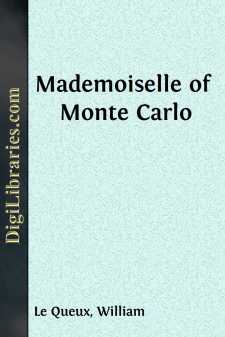Categories
- Antiques & Collectibles 13
- Architecture 36
- Art 48
- Bibles 22
- Biography & Autobiography 813
- Body, Mind & Spirit 142
- Business & Economics 28
- Children's Books 17
- Children's Fiction 14
- Computers 4
- Cooking 94
- Crafts & Hobbies 4
- Drama 346
- Education 46
- Family & Relationships 57
- Fiction 11829
- Games 19
- Gardening 17
- Health & Fitness 34
- History 1377
- House & Home 1
- Humor 147
- Juvenile Fiction 1873
- Juvenile Nonfiction 202
- Language Arts & Disciplines 88
- Law 16
- Literary Collections 686
- Literary Criticism 179
- Mathematics 13
- Medical 41
- Music 40
- Nature 179
- Non-Classifiable 1768
- Performing Arts 7
- Periodicals 1453
- Philosophy 64
- Photography 2
- Poetry 896
- Political Science 203
- Psychology 42
- Reference 154
- Religion 513
- Science 126
- Self-Help 84
- Social Science 81
- Sports & Recreation 34
- Study Aids 3
- Technology & Engineering 59
- Transportation 23
- Travel 463
- True Crime 29
Sort by:
by:
Anonymous
Ourtale is a true one, from which may be taughtA maxim for youth, with utility fraught;—If terrors assail you, examine the cause, And all will be well;—for, byNature’skind laws,Nor Goblins nor Spectres on earth have a station,—These phantoms are all of ideal creation. Monkey, that comical tricks would be at,His frolics one morning began with theCat;He chatter’d, as much as to sayHow d’ ye...
more...
CHAPTER I AN AMERICAN FAMILY The house of the Emery family was a singularly good example of the capacity of wood and plaster and brick to acquire personality. It was the physical symbol of its owners’ position in life; it was the history of their career, written down for all to see, and as such they felt in it the most justifiable pride. When Mr. and Mrs. Emery, directly after their wedding in a...
more...
by:
Various
NOTES. PRESENCE OF STRANGERS IN THE HOUSE OF COMMONS. In the late debate on Mr. Grantley Berkeley's motion for a fixed duty on corn, Sir Benjamin Hall is reported to have imagined the presence of a stranger to witness the debate, and to have said that he was imagining what every one knew the rules of the House rendered an impossibility. It is strange that so intelligent a member of the House of...
more...
by:
Bernklau
According to tradition, the man who held the Galactic Medal of Honor could do no wrong. In a strange way, Captain Don Mathers was to learn that this was true. Don Mathers snapped to attention, snapped a crisp salute to his superior, said, "Sub-lieutenant Donal Mathers reporting, sir." The Commodore looked up at him, returned the salute, looked down at the report on the desk. He murmured,...
more...
by:
Arthur Hornblow
THE MASK CHAPTER I "There! What did I tell you? The news is out!" With a muttered exclamation of annoyance, Kenneth Traynor put down his coffee cup with a crash and, leaning over the table, pointed out to his wife a despatch from London, given prominence in the morning paper, which ran as follows: Advices from Cape Town report the finding on a farm near Fontein, a hundred miles north of here,...
more...
by:
Various
Glammis Castle Here is a castellated palace, or princely castle, associated with many great and daring events in the roll of Scottish history. It stands in the valley of Strathmore, in a park of 160 acres, a little to the north of Glammis, a village of Angus, N.B. The original foundation is of high antiquity; for Malcolm II. was assassinated here in the year 1034, and the chamber in which he expired is...
more...
Chapter One. The Young Colonists Introduced—Expectant Relatives—In Search of “Old Bolter”—A Dinner in the Bush—Bolter tries to Escape—Encounter Blacks—Bolter brought back—Sandy Macdougal. “I wonder what sort of fellows these English cousins of ours will turn out?” exclaimed Harry Berrington, as he rode up alongside his elder brother Paul. “Judging by their photographs, which...
more...
CHAPTER I. In the year 1865 Rome was still in a great measure its old self. It had not then acquired that modern air which is now beginning to pervade it. The Corso had not been widened and whitewashed; the Villa Aldobrandini had not been cut through to make the Via Nazionale; the south wing of the Palazzo Colonna still looked upon a narrow lane through which men hesitated to pass after dark; the...
more...
by:
Robert Nathan
I MRS. GRUMBLE On Sunday the church bells of Hillsboro rang out across the ripening fields with a grave and holy sound, and again at evening knocked faintly, with quiet sorrow, at doors where children watched for the first star, to make their wishes. Night came, and to the croaking of frogs, the moon rose over Barly Hill. In the early morning the grass, still wet with dew, chilled the bare toes of...
more...
by:
William Le Queux
"Yes! I'm not mistaken at all! It's the same woman!" whispered the tall, good-looking young Englishman in a well-cut navy suit as he stood with his friend, a man some ten years older than himself, at one of the roulette tables at Monte Carlo, the first on the right on entering the room—that one known to habitual gamblers as "The Suicide's Table." "Are you quite...
more...











